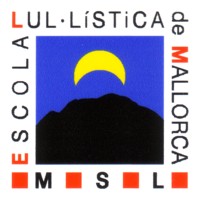Consell
editor
Anthony
Bonner (director)
Maria Isabel Ripoll (secretària)
Lola Badia
Jordi Gayà
Pere Rosselló
Albert Soler
Consell Assessor
Fernando Domínguez Reboiras (Raimundus-Lullus-Institut, Emeritus)
Kurt Flasch (Ruhr-Universität Bochum, Emeritus)
Harvey Hames (Ben
Gurion University of the Negev)
Jocelyn N. Hillgarth (Pontifical
Institute of Mediaeval Studies, Toronto, Emeritus)
Ruedi Imbach
(Université Paris Sorbonne - Paris IV)
Michela Pereira (Università
degli Studi di Siena, Emerita)
Josep M. Ruiz Simón (Universitat de
Girona)
Redacció
Maioricensis Schola Lullistica
Apartat de correus 17
07080 - Palma de Mallorca
scholalullistica@gmail.com
ISSN 1132 - 130X
ISSN digital 2340 - 4752
|
|
P. Beattie, “Crusading and the
Penitential Life: James of Vitry's Crusade Sermon Models and Llull's
De fine.” Studia Lulliana 54 (2014) 33-66.
Abstract
This essay compares James of Vitry’s
crusade sermon models with Llull’s
most extensive treatise on
crusading, De fine and shows that the aspects of crusade
ideology which they share are rooted in the penitential theology which
developed throughout the course of the thirteenth century. The
comparison has
implications for the role of preaching and homiletic
materials in Llull’s own
intellectual and religious formation and for
the centrality of preaching and
rhetorical concerns in his thought.
The study also contributes to our understanding
of the persistence of
enthusiasm for the crusade into the later middle ages
and leads to a
greater appreciation of the role that preaching played in that
persistence.
Most importantly, it points to Llull as representative
of a crucial development
in later medieval religious culture that
came increasingly to emphasize
the notion that religion was something
that one practiced, not simply a set of
propositions to be
believed.
P. Beattie, “Crusading and the
Penitential Life: James of Vitry's Crusade Sermon Models and Llull's
De fine.” Studia Lulliana 54 (2014) 33-66.
Resum
Aquest assaig compara els sermons-model de
Jacques de Vitry sobre la croada
amb el tractat més extens de Llull
sobre aquesta matèria, el De fine, i mostra
que els aspectes
sobre la ideologia de croada que comparteixen deriven de la
teologia
penitencial que es va desenvolupar durant el segle XIII. La comparació
té implicacions en el paper de la predicació i dels materials homilètics
en la formació
intel·lectual i religiosa de Llull, i en la
centralitat que tenen la predicació
i els procediments retòrics en el
seu pensament. L’estudi també ajuda a comprendre
la persistència de
l’entusiasme per la croada a l’edat mitjana tardana i
ensenya que la
predicació va tenir un paper destacat en aquesta persistència. I,
encara més rellevant, mostra que Llull s’inscriu en un desenvolupament
crucial
de la cultura religiosa medieval tardana, segons el qual cal
identificar la religió
amb una pràctica vital i no tan sols
amb un repertori de proposicions en què cal
creure.
Per accedir a aquest volum i a tota la col·lecció de
la revista visitau l'adreça
<http://studia lulliana.uib.cat>
|
|
|
